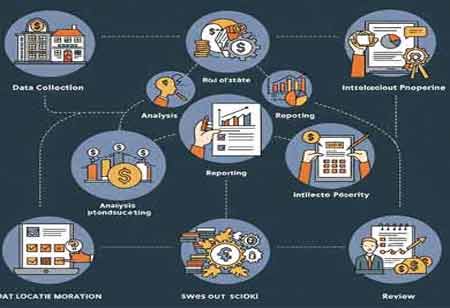CLOSE
Specials
- RegTech Europe
- Financial Risk Management APAC
- Investment Banking APAC
- Corporate Advisory APAC
- Regtech APAC
- Escrow Services
- Digital Banking Latam
- Trading Solutions APAC
- Treasury Management Europe
- CPA Firms Canada
- Financial Risk Management Europe
- Mortgage Broker
- Financial Licensing Europe
- RIA Advisory Europe
- FinTech Canada
- Financial Asset Management APAC
- Investment Banking Canada
- Payment Solution
- Lending Mangment Latam
- Payment Solution Europe
- Broker Dealer Firms Canada
- Alternative Investments Canada
- Financial Fraud
- Investment Management Latam
- Financial Health Europe
- Lending mangment
- Financial Marketing
- Proprietary Trading Europe
- Wealth Management
- FinTech
- Financial Brokerage Firm APAC
- Investment Advisory Europe
- Investment Advisory APAC
- Wealth Management MENA
- Claim Adjusting
- Claim Adjusting APAC
- Mergers and Acquisitions Consulting APAC
- Equipment Financing
- CPA Firms
- Mergers and Acquisitions Consulting Canada
- Investment Services
- Valuation Services Canada
- Wealth Management APAC
- Broker Dealer Firms
- Debt Collection Agencies
- Mergers and Acquisitions Consulting
- FinTech Europe
- Fintech Latam
- Financial Planning / Retirement
- Investment Management
- Financial Compliance
- Digital Banking Europe
- CFO Services
- Debt Collection Agencies Europe
- Wealth Management Europe
- Mergers and Acquisitions Consulting Europe
- Financial Restructuring Europe
- Financial Portfolio Management Canada
- Business Loan
- Payment and Card Latam
- Wealth Management Latam
- Mergers and Acquisitions Consulting Latam
- Tax Advisory Canada
- Trading Solutions Europe
- Alternative Investments
- Digital Insurance Europe
- Investment Services Latam
Weekly Brief
×Be first to read the latest tech news, Industry Leader's Insights, and CIO interviews of medium and large enterprises exclusively from Financial Services Review
Thank you for Subscribing to Financial Services Review Weekly Brief
Predicting AI's Impact on Finance in 2024
The financial industry has undergone a profound transformation owing to the rapid advancement of technology and the ready accessibility of vast amounts of data

By
Financial Services Review | Saturday, November 18, 2023
Stay ahead of the industry with exclusive feature stories on the top companies, expert insights and the latest news delivered straight to your inbox. Subscribe today.
The impact of AI on the financial industry is poised to be transformative. AI-driven solutions are redefining the way financial institutions operate, enhancing efficiency, and enabling better risk management.
FREMONT, CA: The financial industry has undergone a profound transformation owing to the rapid advancement of technology and the ready accessibility of vast amounts of data. This convergence has turned the financial sector into a fertile ground for the integration of cutting-edge AI-powered solutions.
In the dynamic world of fintech, several prominent trends are poised to take centre stage in 2024, offering the potential to redefine conventional banking methods, fortify cybersecurity measures, revolutionise the realm of cryptocurrency trading, and revolutionise customer interactions.
Enhancing Precision and Risk Management
AI has ushered in a significant advancement within the financial sector by enhancing credit assessment procedures. The conventional methods of credit scoring have been revolutionised through the incorporation of alternative data sources, such as social media data and telecommunication records. A hot trend is expected to see AI being utilised by investors to obtain a third-party perspective for fine-tuning the risk profiles of various allocation models for clients, given that AI will have access to a more extensive set of pertinent data. This trend can also be extended to regular individuals who are commencing their portfolios and can avail themselves of AI guidance.
Automated Trading and Investment Strategies Powered by AI
The scope of automated investment solutions has been significantly broadened by AI. Many platforms utilise AI algorithms to enable automated trading across multiple markets, enabling custom strategies to be created by investors and executed by AI systems.
Through these advancements, investors are empowered to optimize their trading strategies, with the capability for buy or sell orders to be executed automatically in response to market fluctuations. This trend is expected to persist, providing investors with innovative tools for efficient portfolio management, as noted by experts.
24/7 Customer Support via AI Chatbots
In 2024, we anticipate increased AI integration across teams and channels within the financial industry. Currently, many institutions operate in isolated silos, with AI data not fully leveraged across different teams. The integration of AI beyond digital channels is expected to break down these silos, benefiting both customers and employees. For instance, within a banking environment, we foresee AI being employed across physical locations, ATM sites, and mobile banking in 2024 and beyond.
The Art and Science of Generative AI in Finance
When discussing Generative AI, it is asserted by experts that it is a highly prominent trend that will steadily bring transformation to the financial industry. Applications of generative AI in finance encompass a wide range of functions, such as turning mundane investment charts or spreadsheets into visually appealing graphics, automating tasks like risk assessment and fraud detection, and facilitating customer service interactions through AI chatbots.
Leveraging AI for Detection and Fraud Prevention
The increasing frequency of financial fraud mandates the adoption of advanced solutions for detection and prevention. For instance, AI-driven algorithms, developed by companies like Feedzai and Kount, are utilised to analyse extensive datasets, identifying fraudulent activities and deceptive behavior patterns. The ongoing enhancement of algorithms in the detection of deception and fraudulent behaviour patterns is deemed a crucial task in response to the escalating numbers of financial attacks. Ultimately, these sophisticated models will further augment the industry's capacity to counter financial crimes, guaranteeing secure transactions and strengthening customer trust.
Mitigating Biases and Ensuring Ethical AI Practices
Mitigating biases and ensuring ethical AI practices in the financial industry are deemed essential as AI permeates various aspects. The accurate training of models, transparency, accountability, and regulatory compliance represent crucial measures for mitigating risks, especially in credit assessment processes. Within this context, it is emphasised that the consumer lending process necessitates monitoring, and financial institutions must transparently demonstrate to customers how the approval process is conducted, along with the assessment and decision-making processes. Additionally, regulatory oversight is also vital. It is noted that the proposed AI Act by the European Parliament outlines the necessity for AI lending platforms, used for services like credit scoring, to adhere to high-risk AI requirements.
Enhancing Monitoring, Detection, and Defence
The incorporation of AI into cybersecurity measures presents a formidable defence against the ever-evolving landscape of cyber threats. AI algorithms facilitate the real-time monitoring of data access and user behaviour, offering precise risk analysis and bolstering security protocols. However, as organisations embrace AI in cybersecurity, they must remain watchful regarding the quality and potential biases within AI models. Furthermore, AI technologies can be leveraged to create proactive defence mechanisms, such as the identification of malicious content within files and the protection of sensitive data from cyberattacks.
Balancing Innovation and Regulation in AI-Driven Algorithmic Trading
AI-driven algorithmic trading's growing popularity presents challenges for market stability. Regulators strive to balance technological progress with legal compliance, necessitating a critical assessment of AI-driven trading's pros and cons. Achieving this balance involves connecting technology's potential with responsible usage while adhering to legal standards. Collaboration between industry and regulators ensures the financial sector harnesses AI's transformative power while safeguarding market stability and investor trust.
AI: An Enabler, Not a Replacement for Humans
AI's expanding presence in finance is reshaping the job landscape by automating tasks and empowering employees to focus on innovation and strategic planning. Instead of replacing human jobs, AI enhances productivity and efficiency across financial sectors.
Future developments in AI, including Generative AI for diverse content generation, are set to revolutionise customer interactions, task automation, and investment ideation. In cryptocurrency trading, AI's role in market analysis, risk management, and strategy optimisation is pivotal. AI in software development promises a streamlined user experience. These trends herald a new era of efficiency and security in the financial industry in 2024.
Innovations such as Generative AI promise to revolutionise customer interactions and investment strategies, while AI's role in cryptocurrency trading and software development is set to be pivotal. With the right balance of innovation and regulation, AI is expected to usher in a new era of efficiency and security in finance.

Copyright © 2025 Financial Services Review. All rights reserved





